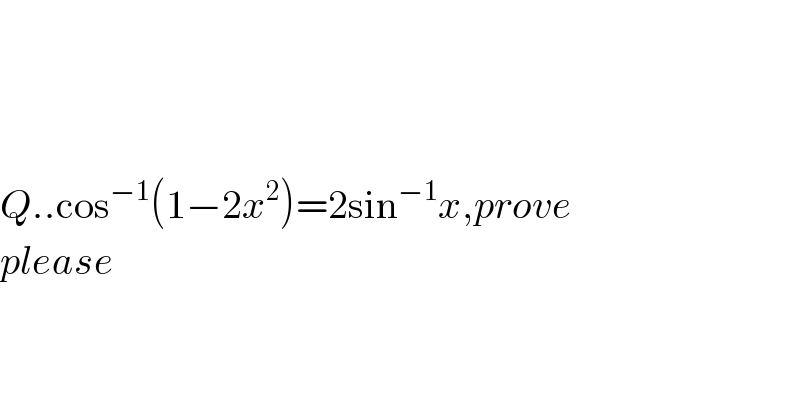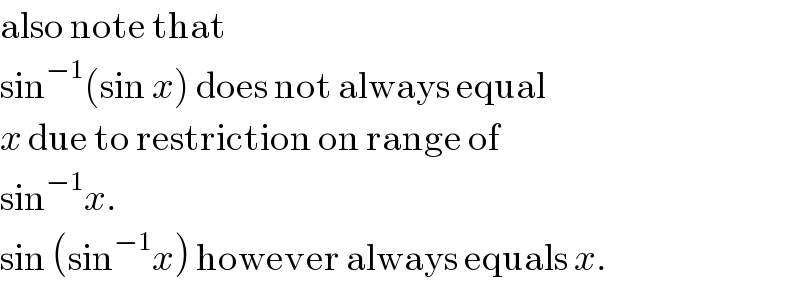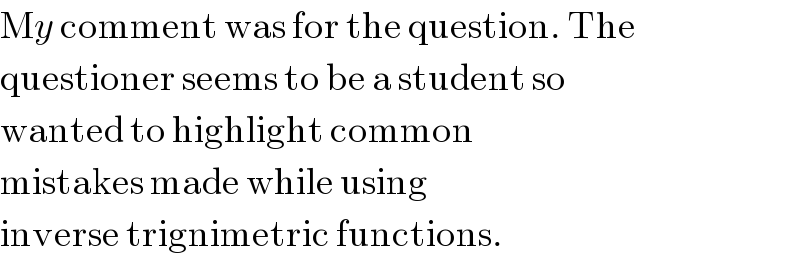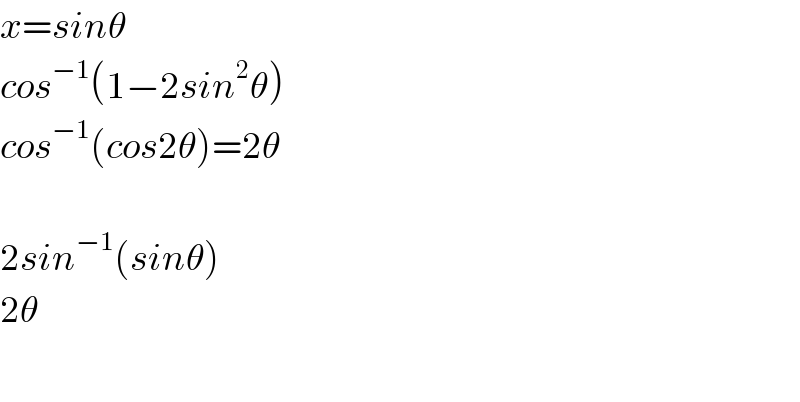
Question and Answers Forum
Question Number 40466 by naziri2013@ last updated on 22/Jul/18

Commented by maxmathsup by imad last updated on 22/Jul/18
![let prove that arccos(1−2x^2 )=2arcsinx let f(x)=arccos(1−2x^2 )−2arcsinx D_f ? x∈ D_f ⇔ −1≤x≤1 and −1≤1−2x^2 ≤1 but −1≤1−2x^2 ≤1 ⇔−2≤−2x^2 ≤0 ⇔ 0≤2x^2 ≤2 ⇔0≤x^2 ≤1 ⇔ −1≤x≤1 ⇒ D_f =[−1,1] we have f^′ (x)= ((−(−4x))/(√(1−(1−2x^2 )^2 ))) − (2/(√(1−x^2 ))) =((4x(√(1−x^2 )) −2(√(1−(4x^4 −4x^2 +1))))/((√(1−x^2 ))(√(1−(1−2x^2 )^2 )))) =((4x(√(1−x^2 )) −2(√(4x^2 −4x^4 )))/((√(1−x^2 ))(√(4x^2 −4x^4 )))) = ((4x(√(1−x^2 )) −4∣x∣(√(1−x^2 )))/((√(1−x^2 ))(√(4x^2 −4x^4 )))) if 0<x<1 we have f^′ (x)=0 ⇒f(x)=c ∀ x∈[0,1] f(x)=f(0)=0 if x∈]−1,0[ f^′ (x)= ((8x(√(1−x^2 )))/(−2x(1−x^2 ))) =((−4)/(√(1−x^2 ))) ≠0 ⇒f is not constant finally we have arccos(1−2x^2 )=2 arcsinx if x∈[0,1] .](Q40468.png)
Commented by prakash jain last updated on 22/Jul/18
![This is not true in general range of cos^(−1) is [0,π] range of sin^(−1) is [−(π/2),(π/2)] put x=−(1/2) 2sin^(−1) x=−(π/3) cos^(−1) (1−2x^2 )=cos^(−1) (1/2)=(π/3)](Q40491.png)
Commented by prakash jain last updated on 22/Jul/18

Commented by prof Abdo imad last updated on 23/Jul/18
![i have proved that equality is true in[0,1] and x=−(1/2) ∉[0,1] !](Q40503.png)
Commented by prakash jain last updated on 23/Jul/18

Answered by tanmay.chaudhury50@gmail.com last updated on 22/Jul/18

